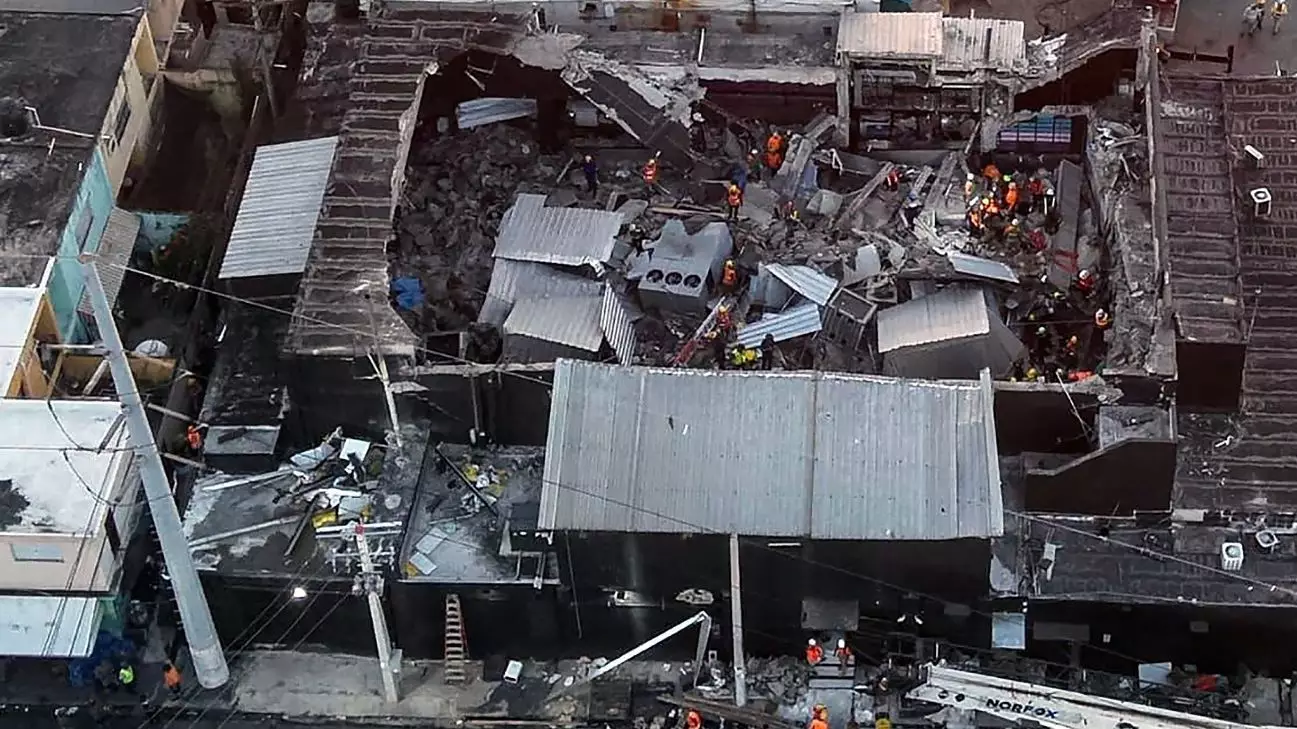In a devastating turn of events that has shaken the Dominican Republic to its core, over 70 lives were lost when the roof of the Jet Set nightclub in Santo Domingo collapsed during a festive merengue concert. This incident is not merely a statistical tragedy but a catastrophic event that has robbed families of their loved ones and communities of their pillars. Among those who perished were former Major League Baseball players Octavio Dotel and Tony Blanco, alongside Nelsy Cruz, the sister of MLB star Nelson Cruz. The sheer scale of this disaster is heart-wrenching, with at least 79 confirmed fatalities and 160 injured, leaving a haunting void in the lives of countless individuals.
The incident marks a dark moment for a nation where baseball is more than just a sport; it is a vital thread in the cultural fabric. As we reflect on this calamity, it is crucial to grasp the broader implications. The losses extend far beyond the physical; they ripple through families and friends, casting a long shadow over the collective spirit of Dominican society.
The Role of Leadership and Accountability
What remains painfully unclear is how such a tragedy could transpire in a venue that should ensure the safety of its patrons. This incident ignites questions about the oversight and regulations governing public spaces in the Dominican Republic. How could the structural integrity of a place that hosts large gatherings come into question? Officials need to take a long, hard look at building regulations and maintenance practices. The loss of lives should not be a wake-up call; it should serve as a turning point that demands responsible governance.
President Luis Abinader’s emotional acknowledgment of the tragedy signifies a leadership response that is both necessary and expected. However, mere statements of sorrow are insufficient. The government must take decisive action to prevent future occurrences through stringent checks on establishments and the promotion of safety standards. Recovery efforts, while commendable, must be coupled with accountability measures that assure the public that their safety is paramount. Without these, the poignant memories of those lost will be overshadowed by the specter of negligence.
The Impact on the Baseball Community
The baseball community’s grief is palpable. Rob Manfred, the Commissioner of Major League Baseball, expressed his condolences, emphasizing the deep connection between the sport and its Dominican players. Dotel and Blanco were not mere athletes; they were symbols of hope, aspiration, and success for many. Their premature departure leaves an unspeakable void that extends beyond the diamond. Amid the celebration of the sport thrives an undercurrent of sorrow and reflection.
In his statement, MLB Players Association executive director Tony Clark articulated a sentiment that resonates deeply with those who’ve witnessed the highs and lows of sporting life. The notion of “standing united” is essential; it promotes a collective healing process that transcends the field. However, this unity must also spur action. Organizations have a responsibility to support the families of the victims—financially, emotionally, and through advocacy.
Communities in Mourning
As the days pass, the collective mourning will likely give way to activism. The tragic loss of life has ignited conversations about safety protocols, infrastructure integrity, and community accountability. The echoes of laughter and music that once filled the Jet Set nightclub now serve as a haunting reminder of fragile joy. This incident compels us to reevaluate our priorities—not just as individuals, but as a society that values life and community well-being.
The heartache experienced in the Dominican Republic is a poignant reminder of how connected we all are. Tragedies like this do not discriminate; they ripple through our communities, affecting professors, students, shop owners, and athletes alike. The road to healing will undoubtedly be long and arduous, but it is essential that the memories of those lost become catalysts for change rather than fading footnotes in history.
This moment in time calls for action, reflection, and a recommitment to fostering safer environments in our public spaces. It’s an urgent plea for all of us to advocate for the lives of those who can’t advocate for themselves anymore. Embracing our collective grief can drive the imperative to foster stronger, safer communities in the wake of this tragic event.

Leave a Reply